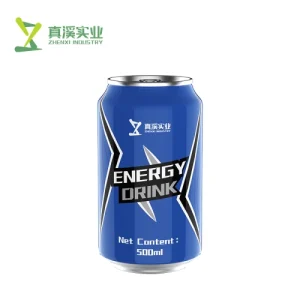There are many reasons why beverage cans are considered environmentally friendly with respect to sustainability they have multiple features that makes them an eco-friendly packaging choice. The factors resulting in this are recyclability, energy efficiency during manufacturing and the green aspect (of aluminium) as a material.
The high recyclability of beverage cans is one of their key points in sustainability. The versatility of aluminum means that it can actually be recycled over and over again while maintaining the same level of quality. Seventy-five percent of all aluminum ever produced is still in use today, according to the Aluminum Association. Nearly three-quarters of all aluminum beverage cans in Europe were recycled, while the recycling rate for such containers was 50.4 percent stateside last year This recyclability rate is high and helps to lower the use of new raw materials as well as reduce waste.
Another important factor is the energy efficiency in production efficient. Recycled material requires 95% less energy to produce new aluminum compared with raw bauxite ore. This represents a sizeable energy saving amounting to substantial greenhouse gas emission reductions. As an example, recycling one tonne of aluminum can save around 14,000 kilowatt hours (kWh) of energy - the average amount used by a house in a year.
The lightweight property of aluminum cans aids and supports sustainability efforts. This makes for cheaper shipping, since lighter packaging leads to lower transportation costs - and reduced carbon emissions. Ball Corporation, a major beverage can manufacturer reports that aluminum cans are now 15-20% lighter than they were just thirty years ago reducing the transportation fuel load behind them and thus adding to their environmental advantages.

Aluminum cans also provide better protection for beverages, which can translating into less product waste. The material provides a superior barrier to protect beverages against light, oxygen and other spoilage agents enhancing beverage taste quality over time. This leads to longer life for products making the chances of spoilage and wastage very less.
Additionally the recycling of content increases their sustainability for beverage cans. A beverage per can is made up to an average of 70% recycled aluminum. The extensive use of recycled content helps to alleviate the requirement on virgin aluminum and thus reduces overall mining and processing activity, which in turn lowers environmental impact.
Changes in how cans are madeMight we be seeing more round bottles replacing rectangular ones? In response, companies are now joining the 21st century and investing in new technologies to make can production more efficient while also having a smaller environmental impact. For example, by up to 20% per can manufacturing process for a time at Ball Corporation.
Fortunately, sustainability initiatives by beverage companies seem to be reassuring proponents of the Earth. Coca-Cola's World Without Waste campaign is to collect and recycle one can for every single ones that they sell by 2030. There is a shareholder demand for these corporate commitments to push the industry toward more sustainable solutions and higher recycling rates overall.
As the famous environmentalist David Attenborough said, "The greatest threat to our planet is the belief that someone else will save it. " These feelings highlight the need for global cooperation on sustainability issues - such as producing and recycling beverage cans.
For Beverage Cans, It is Backed by a Large Body of Research with Rigorous Life Cycle Analyses (LCAs) to Prove Their Environmental Benefits. It considers the entire product life - from extraction of all materials to carrying cases you throw in trash. In the stibial they found, as we might expect from evolutionary theory, that environmentally responsible social and political attitudes are associated with lmittendendorfian environmental philosophy.
So to summarize, the sustainability of beverage cans is derived from the fact that they are easy and cost-effective to recycle; good for energy efficiency in terms of production long-term use due their lightweight feature coupled with high recycled content ratio. Collectively, these factors - along with continued innovations and corporate sustainability goals for Beverage Cans make them an extremely sustainable packaging option. This initiative reduces waste, lowers carbon emissions and saves natural resources - a more sustainable future!